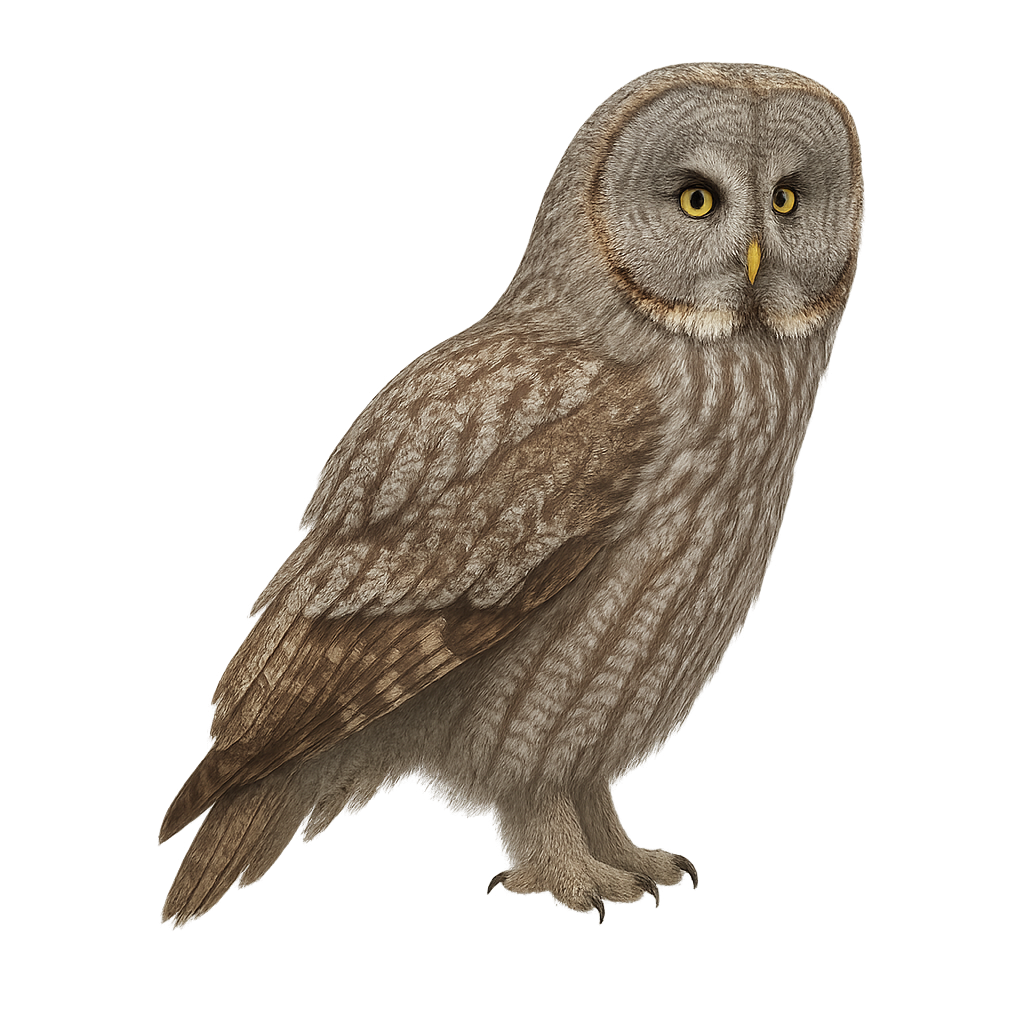Observe and photograph a species in its natural habitat
Learn where and when to observe a species in the wild, how to recognize it in the field, and what habitats it lives in. Get photography tips adapted to its behavior and capture stunning images without disturbing the animal. For full details, open the complete profile in the WildlifePhotographer app.
Great grey owl
Scientific name: Strix nebulosa

IUCN Status: Least Concern
Family: STRIGIDAE
Group: Birds
Shyness: Suspicious
Safe distance: 50 m
Breeding season / Courtship: 01.02-31.03
Gestation: N/A
Births: 01.04-31.05
Habitat:
Boreal forests, mountainous regions, and woodlands of the northern parts of Europe, Asia, and North America
Description:
The Great Grey Owl is a large nocturnal raptor, easily recognizable by its broad facial disc and piercing yellow eyes. Its plumage is primarily gray and brown, with lighter markings on the belly and wings. It has a massive build, a round head, and long wings that allow it to fly silently. This raptor primarily inhabits boreal forests and northern regions of Europe, Asia, and North America.
The Great Grey Owl primarily hunts small mammals, such as hares, rodents, and birds. It has a remarkable ability to locate its prey with its keen hearing and silent flight. It is a solitary owl, preferring dense forests where it can hide during the day. While its population remains generally stable, it is threatened by deforestation, habitat loss, and human disturbances. It is protected in many areas to ensure the preservation of its forest habitats.
Recommended lens:
>=200 mm
Photography tips:
Use a telephoto lens to photograph the Great Grey Owl, especially during its nocturnal movements or in dense forested areas. The soft light of morning or evening is ideal for capturing sharp images without disturbing its natural behavior. Be patient and respect its space, especially during the breeding season, to avoid disrupting its habitat.
Ready to take action?
Choose your platform and start your free trial today



